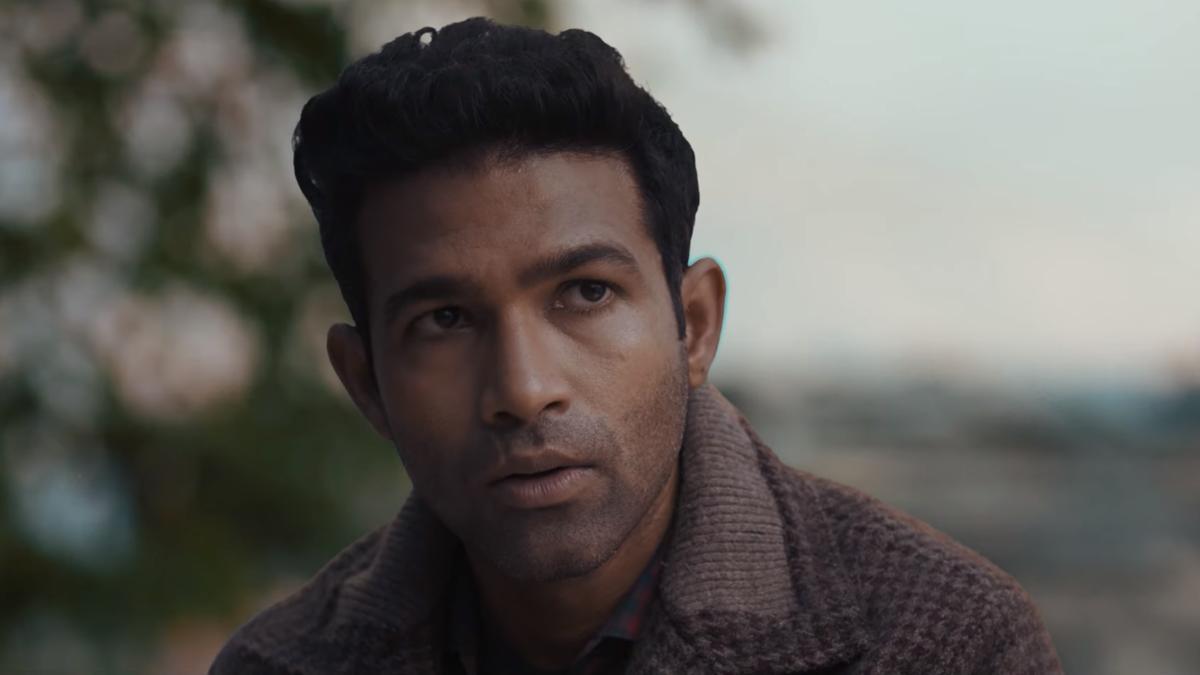
Our society has yet to come to terms with the sad reality that sexual exploitation is not gender-specific. Perhaps that’s why our mainstream cinema either often ignores the sexual manipulation of boys or treats it as a device for comic relief. For a refreshing change, “Pushtaini,” an independent film with a significant purpose, dives deep into these seldom-explored waters. The film opens on a film set where Aryan Shaw, portrayed by Vinod Rawat, is a struggling actor failing to get his lines right, resembling an emaciated cat attempting to roar like a tiger.
The scene transitions to reveal Aryan’s alter ego, Bhupinder or Bhuppi, a simple mountain boy from Uttarakhand. Bhupinder’s life has been marred by the harrowing experiences of the casting couch, a dark reality where sexual favors are exchanged for professional opportunities. The line producer holds a compromising video that could end Bhuppi’s career. Paradoxically, the frustration from being blackmailed ignites a genuine performance that was previously lacking. It’s something that Rajkumar Rao, a hero in the “film within the film”, advises Aryan to channel, but until this point, Aryan and Bhuppi exist as two distinct personas within the same individual.
In a desperate bid to escape his torment, Bhuppi returns to his ancestral lands in Uttarakhand. The lush, serene landscapes soon trigger buried memories, revealing the troubled past that compelled him to flee to the city. As the film’s title starts to make sense, it becomes evident that Bhuppi suffers from deep-rooted daddy issues, presenting a dimension more nuanced than similar themes in mainstream cinema. A running theme in the story is his strained relationships, particularly with a sister who feels betrayed and an aunt who blames him for his father’s untimely death.
Additionally, Bhuppi confronts a legal will held by his father’s employer, Yashpal, played by Mithilesh Pandey, whom Bhuppi tries to avoid due to a traumatic incident in his childhood. This creates an emotionally charged atmosphere where both the soundscape and landscape intricately contribute to storytelling.
In his journey towards self-discovery, Bhuppi crosses paths with Dimple, a life coach played by Rita Heer, who has her own unresolved childhood traumas.
. Bhuppi avoids the intoxication that peels away his emotional defenses, whereas Dimple resorts to marijuana and vodka to cope with the gravity of their situations and the overwhelming landscape.
Adding a touch of humor and light-heartedness to the movie is Hemant, played by Hemant Pandey, a taxi driver and Bhuppi’s childhood friend. Hemant exemplifies a typical small-town man who judges women based on their culinary and lifestyle choices, thereby providing respite from the intense narrative.
Vinod Rawat, excelling in his roles as Bhuppi and Aryan, has skillfully directed, produced, and co-written “Pushtaini.” Through Bhuppi’s journey, Rawat explores themes of unemployment, migration, and economic hardships in rural areas, subtly indicating how these issues often make individuals vulnerable to various forms of exploitation. Rawat avoids making these topics an overt focus, seamlessly integrating them into the narrative.
Bhuppi’s struggle is inherently ‘Pushtaini,’ a legacy passed down through generations. Sexual exploitation on the societal fringes isn’t new, and discussing such experiences remains taboo. Time and spatial changes seem irrelevant; the burden of secrecy persists. Rawat intricately captures this continuing helplessness and survival instinct in Bhuppi through a gripping storyline that does not plead for concessions for being an independent production.
On a technical front, “Pushtaini” largely bears the attributes of a heartfelt, personal student film, pulsating with a vibrant emotional core. While some loose ends in the script and acting feel less polished, this rawness sometimes benefits the film by adding genuine expression. However, there are episodes where obvious metaphors are overused for dramatic effects.
Despite these minor flaws, “Pushtaini” holds its ground against many lavish productions currently in theatres. The film does not seek mercy for being an indie project; instead, it strives to find its path in the selective and often ruthless distribution system dominated by big-budget tentpole films and entrenched industry players.
A robust examination of personal demons and societal taboos, “Pushtaini” is a thought-provoking narrative currently running in theaters, awaiting its deserving audience.












